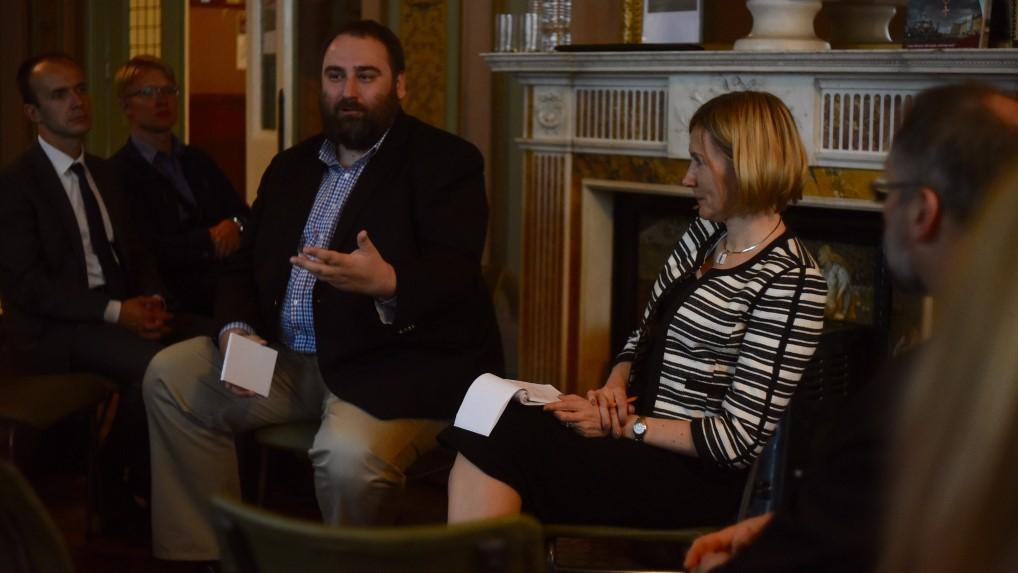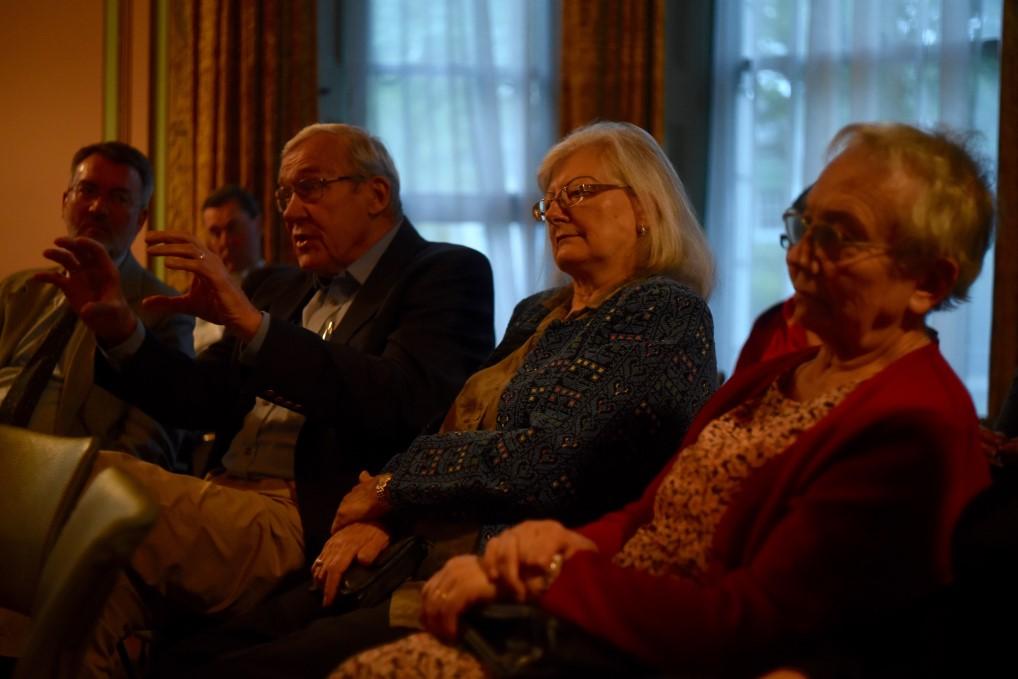Yevhen Hlibovytsky gave the talk ‘Ukraine’s post-Maidan Transformation: glass half-full or half-empty?’ at the Ukrainian Institute London on 22 May 2016.

AUTHOR
Iuliia Drobysh, European Youth Parliament and student of MA in International Relations, University of St Andrews.
“We, Ukrainians, oppose our great fear of existence…” – these were the words of Yevhen Hlibovytsky, guest speaker at the Ukrainian Institute London on May 22. ‘Ukraine’s post-Maidan Transformation: glass half-full or half-empty?’ was a revealing conversation about Ukraine’s future and what further steps could be taken in order to make the country prosperous. Mr. Hlibovytsky explained the particularities of Ukrainian culture, mostly drawing on historical facts to justify the current state of affairs. He is currently chairing the Nestor Group, which issued the document ‘Vision of Ukraine-2025: Contract of Dignity for Sustainable Development,’ outlining the roadmap to the ‘trajectory of growth’ in Ukraine.
The existing lack of trust, according to Hlibovytsky, holds Ukraine back from “developing at an incredible pace”
One of the obstacles is the inability to form a trust-enabling set of rules, binding for society as a whole, he says. The existing lack of trust, according to Hlibovytsky, holds Ukraine back from “developing at an incredible pace”, simultaneously slowing down the reforms already being put in place.
The creation of a new model instead of following the already existing one, according to Hlibovytsky, will enable the accommodation of Ukraine’s needs and pave its way to the already-mentioned ‘trajectory of growth’. One of the main aims of such a model should be enabling citizens to increasingly participate in decision-making processes, to keep a firm “set of rules everyone has to agree on” and to enforce the “red-line of corruption”. Past events that took place in Ukrainian history should also be noted. By comparing the Ukrainian revolutions of 2004 and 2013, Hlibovytsky contrasted the hopes that the Ukrainians had for the politicians on the podium (2004) with the subsequent willingness to change the status quo without their help (2013). It can be observed that dissatisfaction with the state of affairs led to urgency for a new social contract.

Equally important, Hlibovytsky emphasized how certain events, such as the taking down of a Lenin statue, were ‘translated’ in ideological terms in both Donbas and Crimea. By providing examples of people’s vulnerability in the aforementioned territories, he stated the following: “Communism was not really the ideology, but religion. Taking down the whole system meant: ‘the world we live in is over, protect yourself’. Institutions no longer worked, meaning the end of the world for them.”
Photo: The audience at Yevhen Hlibovytsky’s talk.
By reflecting on the general perception of the world in some parts of Ukraine, Hlibovytsky constantly highlighted the importance of citizens becoming the ‘guardians’ of the country. There is currently only a “very active minority who cares”, which should be transformed to a much greater number.
Despite the change in minds of thousands of Ukrainians, certain pre-conditions must be fulfilled to enable the growth of both a state and a nation.
Despite the change in minds of thousands of Ukrainians, certain pre-conditions must be fulfilled to enable the growth of both a state and a nation. Not only should security be a priority in the Ukrainian agenda, but “fixing the elite” and changing not the system, but the rules acted upon by decision-makers are also crucial goals for the country.
This talk by Yevhen Hlibovytsky gives further hope for Ukraine’s transformation. As he puts it, “it is not disability, but lack of a system of rules” which holds Ukraine back from significant growth. It is surely not up to a single individual’s actions to change the set of order; it should be a dialectic, continuous process where new generations are educated in a different way of thinking, while the older generations are relieved of the burden of an old, inefficient system of education and values. It is certainly a challenge, but even if Ukrainians sometimes feel as if they “are not where they want to be”, Hlibovytsky has good news, assuring that Ukraine’s glass is “full rather than empty”. To conclude, most importantly, only the united effort and common longing of its people will determine how the glass of Ukraine will be filled in the future and whether Ukrainians will live in the prosperous country they deserve.


